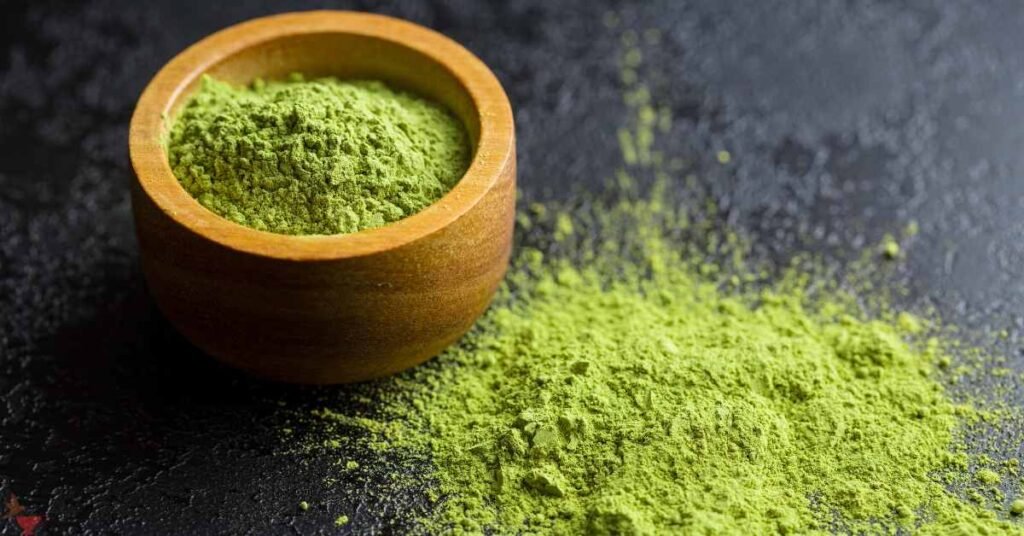Green tea is renowned worldwide for its health benefits, ranging from antioxidant properties to enhancing cognitive function.
However, within the realm of green tea, matcha stands out due to its unique preparation process and concentrated nutrients.
This article explores the health benefits of drinking matcha compared to regular green tea, highlighting why matcha is considered a superior choice for many health enthusiasts.
Understanding Matcha and Regular Green Tea

Before delving into the health benefits, it’s essential to understand the fundamental differences between matcha and regular green tea:
- Matcha is a type of green tea made from shade-grown tea leaves. The leaves are harvested, steamed, dried, and then ground into a fine powder. When you drink matcha, you consume the entire tea leaf, which results in a higher concentration of nutrients.
- Regular Green Tea involves steeping whole tea leaves in hot water, and then discarding the leaves. This method extracts some of the beneficial compounds, but not to the extent achieved with matcha.
Nutrient Density
Antioxidants
Matcha is packed with antioxidants, particularly catechins, a type of flavonoid that is potent in fighting free radicals.
One of the most powerful catechins found in matcha is epigallocatechin gallate (EGCG), known for its cancer-fighting properties.
Studies have shown that matcha contains up to 137 times more EGCG than regular green tea.
Vitamins and Minerals
Both matcha and regular green tea contain a variety of vitamins and minerals, including vitamin C, selenium, chromium, zinc, and magnesium.
However, the concentration is significantly higher in matcha due to the consumption of the whole leaf.
Matcha is also a rich source of fiber, which is largely absent in regular green tea.
Health Benefits

Enhanced Calm and Alertness
Matcha contains an amino acid called L-theanine, which promotes a state of relaxation and well-being.
L-theanine also enhances brain function by increasing alpha wave activity, which induces a state of calm alertness.
While regular green tea also contains L-theanine, the levels in matcha are considerably higher.
Energy and Endurance
The combination of caffeine and L-theanine in matcha provides a sustained energy boost without the jittery effects often associated with coffee.
The caffeine content in matcha is about three times higher than that of regular green tea, making it an excellent choice for those looking for a longer-lasting energy source.
Weight Loss
Both matcha and regular green tea have been associated with weight loss due to their ability to increase metabolism and fat oxidation.
However, matcha’s higher concentration of EGCG enhances these effects, making it a more potent option for weight management.
Detoxification
Matcha is a rich source of chlorophyll, a natural detoxifier that helps remove heavy metals and chemical toxins from the body.
The chlorophyll content in matcha is significantly higher than in regular green tea due to the shading process used during cultivation.
Cardiovascular Health
The catechins in matcha and regular green tea help improve cardiovascular health by reducing levels of LDL cholesterol and triglycerides, as well as protecting the LDL particles from oxidation.
This reduces the risk of heart disease. However, due to the higher catechin content, matcha provides a more robust cardiovascular benefit.
Final Word

While both matcha and regular green tea offer substantial health benefits, matcha’s unique cultivation and preparation process result in a higher concentration of nutrients, providing enhanced health benefits.
From superior antioxidant properties to improved mental clarity and sustained energy, matcha stands out as a powerful green tea variant.
Incorporating matcha into your daily routine can offer a significant boost to overall health and well-being, making it a worthwhile addition to any diet.
References
- Antioxidant Content: USDA National Nutrient Database, “Catechin Content in Green Tea”.
- L-theanine and Relaxation: University of Shizuoka, “Effects of L-theanine on the Release of α-Brain Waves”.
- Energy and Endurance: American Journal of Clinical Nutrition, “The Combination of Caffeine and L-theanine Improves Cognitive Performance and Increases Subjective Alertness”.
- Weight Loss: International Journal of Obesity, “Green Tea Catechins with Caffeine Increase Fat Oxidation During Exercise”.
- Detoxification: Journal of Toxicological Sciences, “Chlorophyllin and the Mechanisms of Detoxification”.
- Cardiovascular Health: Harvard Medical School, “The Heart-Healthy Benefits of Tea”.




